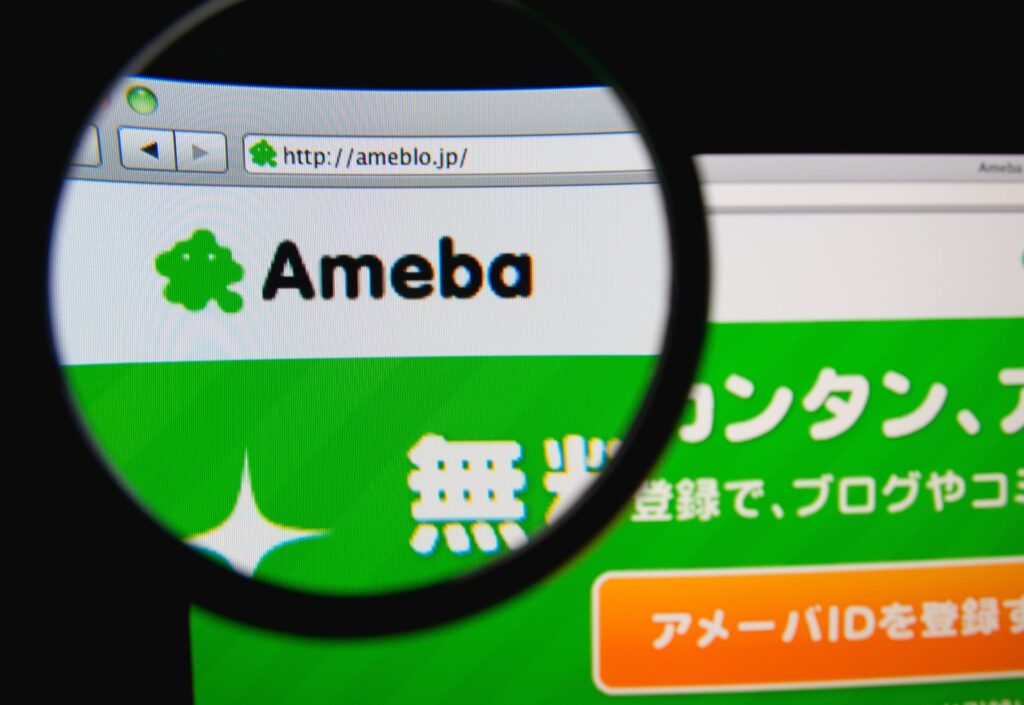Explaining the Procedures Necessary for Deleting Posts and Identifying Post Owners on “5ch” of Japan

5ch (formerly 2ch) is a massive anonymous bulletin board that receives numerous accesses and posts from a multitude of users. Unfortunately, among the vast amount of posts made daily, there are those that defame individuals and companies.
So, how can we promptly delete these post owner and accurately identify the posters? Let’s delve into the procedures in detail.
What is Identification of Posters on Anonymous Bulletin Boards?
Identification of posters, simply put, is the process of “requesting information disclosure from individuals or companies who have information linked to the poster, in order to identify the poster.” In the case of 5ch (formerly 2ch), the request for disclosure is made to the operator.
As for who the operator of 5ch (formerly 2ch) is, there were circumstances such as the name change from 2ch to 5ch, but currently, it is the Philippine corporation “Loki Technology Inc.”
However, “Loki Technology Inc” often does not know the names or addresses of the posters. Therefore, a request for IP address disclosure becomes necessary.
The Relationship Between Identifying the Poster and Requesting the Disclosure of IP Addresses

Even if the address and name of the poster are unknown, the bulletin board operator, “Loki Technology Inc,” has information that connects to the poster. That is the IP address.
An IP address is information that can be considered as an address on the Internet, which is uniquely held by PCs and smartphones (or routers in the case of PCs) when they are connected to the Internet.
If you can receive the disclosure of the IP address, you can identify the transit provider (such as Nifty for fixed lines and docomo for mobile carrier lines) that manages that IP address. The transit provider holds the subscriber information of the user who was using that IP address at the specific date and time. It’s a bit complicated, but for example, it works like this:
- “Loki Technology Inc” holds the information that the IP address of the user who made a certain defamatory post is “126.212.170.222.”
- If investigated, it can be found that 126.212.170.222 is an IP address managed by SoftBank Corp.
- SoftBank Corp. holds the subscriber information (the person’s address and name) of the subscriber who was using the IP address 126.212.170.222 at the date and time when the post was made.
Therefore, to identify the poster who made the post, you will need to follow the steps below:
- Request the disclosure of the poster’s IP address from “Loki Technology Inc.”
- Request the disclosure of the subscriber’s address and name from SoftBank Corp.
Because of this mechanism, requesting the disclosure of the IP address from the operator of 5channel (“Loki Technology Inc”) is a very important point in identifying the poster who made the post.
How to Request IP Address Disclosure from 5channel
5channel (formerly 2channel) accepts requests for deletion of posts that may be considered defamatory via email. In cases of defamation against celebrities or companies, it can be difficult to get a response, but in cases involving personal privacy information, deletion may be granted based on an email from the victim themselves, even without the need to involve a lawyer.
However, 5channel (formerly 2channel) does not accept requests for IP address disclosure via email from the victim themselves. To request the disclosure of an IP address, you must generally go through a court procedure.
In situations where you are requesting the disclosure of an IP address through a court, it is not sufficient to simply argue that:
- You want to identify the person who made an unpleasant post
- You want to identify the poster because the post violates the deletion criteria set by 5channel (formerly 2channel)
What is questioned in a court procedure is:
- How the post infringes on the victim’s rights
- What the evidence of this is
This is purely a legal argument. For example, if a company is being unfairly labeled as a “black company” and wants to identify the person who made the post, they must meticulously gather evidence that they are complying with labor laws.
This procedure is likely to be difficult without the assistance of a lawyer.
Deletion of Posts and Disclosure of IP Addresses
It is important to note that “it is probably very difficult to request the disclosure of an IP address after deleting a post”. The approach is to first make a deletion request that can be handled individually, and then proceed with a court procedure for the disclosure of the IP address. This is likely to be very difficult for a layperson. 5channel (formerly 2channel) is a large bulletin board, managed by multiple web servers, each of which may have different specifications. This makes it difficult to verify anything about 5channel (formerly 2channel).
According to our firm’s expertise, it appears that the IP address logs on 5channel (formerly 2channel) disappear after a certain period following the deletion of a post. As mentioned later, the process of requesting the disclosure of an IP address using a “provisional disposition” procedure requires about a month.
- Delete the post yourself
- Start preparing for the IP address disclosure request by hiring a lawyer
- The IP address is disclosed in about a month
With this procedure, there is a high possibility that the IP address log will disappear between steps 2 and 3, making it impossible to receive the disclosure.
Therefore, if you want to identify the poster, it is better to hire a lawyer with expertise from the beginning. As mentioned later, in the court procedure (provisional disposition) to request the disclosure of the IP address, it is possible to request the deletion and disclosure of the IP address at the same time.
What is a Provisional Disposition Procedure for Disclosing IP Addresses?
What is a Provisional Disposition Procedure, Faster than a Trial?
Generally, it takes at least three months to get a judgment in a trial, and in complicated cases, it can take over a year. Since there is a time limit for identifying the poster, a quick procedure called “provisional disposition” is allowed instead of a “trial”. The provisional disposition procedure is as follows:
- As soon as you submit a petition (in place of a complaint), a hearing can be held immediately.
- Once the hearing is over, the next hearing is scheduled about a week later.
- In some cases, the procedure can be completed in just one or two hearings.
- Once the discussion is exhausted, a decision (in place of a judgment) can be issued in as little as a week.
Therefore, from the submission of the petition to the decision, it takes about a month.
Characteristics of IP Address Disclosure Requests by Provisional Disposition
The provisional disposition procedure has the following personalityistics:
- It is possible to request the deletion and disclosure of the IP address for a certain post at the same time.
- If it is a response within 5ch, it is possible to request multiple responses at the same time.
- The “victim” (the “creditor” who corresponds to the “plaintiff” in a trial) must be one person (or one company) for each provisional disposition procedure. For example, if Mr. A is defamed in a response and Mr. B is defamed in another response, Mr. A and Mr. B cannot jointly pay the attorney’s fees and request the disclosure of the IP address for the two responses in one procedure.
Even though it is said that “it is possible to request multiple responses at the same time”, it is necessary to consider “why the post is illegal and what is the evidence” for each post, or at least for each content.
“Content unit” may be a little difficult to understand, but for example,
- If there are multiple posts saying “black company”, they can be grouped together.
- If a post says “service overtime is rampant”, you need to scrutinize the argument and evidence in relation to that post.
In other words, if you target too many posts, the “content” in the above sense will increase, and the procedure may not end in a short period of time, and there is a risk of failing to identify the perpetrator who posted.
If the lawyer has extensive experience in defamation measures, the procedure can proceed without slowing down too much, even if there are about 20 to 30 contents to consider.
Time Limit for IP Address Disclosure
Just as there are strict time limits for the log retention periods of fixed-line and mobile carriers, identifying the poster is generally a race against time.
This is due to the specifications of 5ch (formerly 2ch) and issues unique to the internet.
Time Limit for Log Retention by 5ch
Firstly, 5ch (formerly 2ch) may not retain the logs of IP addresses for very old posts, and the retention period varies depending on the server.
Time Limit for Log Retention by Transit Providers
Also, transit providers (such as Nifty for fixed-line connections and Docomo for mobile carrier connections, as mentioned above) often only retain connection logs for the following periods:
- About one year for fixed-line connections
- About three months for mobile carrier connections
Therefore, the following steps 1 to 3 must be carried out within three months from the date of posting in the case of mobile carrier connections.
- Request the disclosure of the IP address from 5ch (formerly 2ch) using the provisional disposition procedure as mentioned above
- Check the disclosed IP address in step 1 to identify the transit provider
- Ask the transit provider to preserve the IP address until the end of the lawsuit in which you will request the disclosure of the name and address
- Sue the transit provider to request the disclosure of the name and address
Step 1 alone requires about one month for the procedure.
Identifying the poster, especially in the case of mobile carrier connections, is a very strict race against time.
There is a Chance of Identifying the Poster Within One Year
As explained above, it may seem that requesting the disclosure of an IP address is meaningless unless the post is within about two months. However, this is not necessarily the case for the following reasons:
- Not all posts are made via mobile carrier connections. If you request the disclosure of IP addresses for a certain number of posts, many of them often include more than half of the posts made via fixed-line connections
- By analyzing the ‘ID’ displayed for posts on 5ch, you can sometimes obtain certain information about whether the post was made via a mobile carrier connection or a fixed-line connection, and in many cases, you can make a reasonable estimate in advance
Estimate of Attorney Fees for IP Address Issues
If you are successful in disclosing the address and name, and can identify the offender, the attorney fees incurred for the procedure up to that point can be claimed as “investigation costs” from the offender. Furthermore, it is also possible to claim damages from the offender.
If you can receive sufficient payment from the offender, there will be no “financial burden on the victim’s side”. However, there are also risks as follows:
- The risk that even if there is legal legitimacy and the attorney does his best, he cannot reach the offender due to technical limitations, etc.
- The risk that you cannot receive payment due to the offender’s financial situation, etc.
In particular, the former is based in part on current laws and court practices, as detailed in the aforementioned article.
Attorneys who deal with defamation measures on a daily basis have know-how on complex procedures up to identification. There is also a time limit issue, so if you are having trouble with specific defamation, it is best to consult with a professional lawyer promptly.
Category: Internet





















